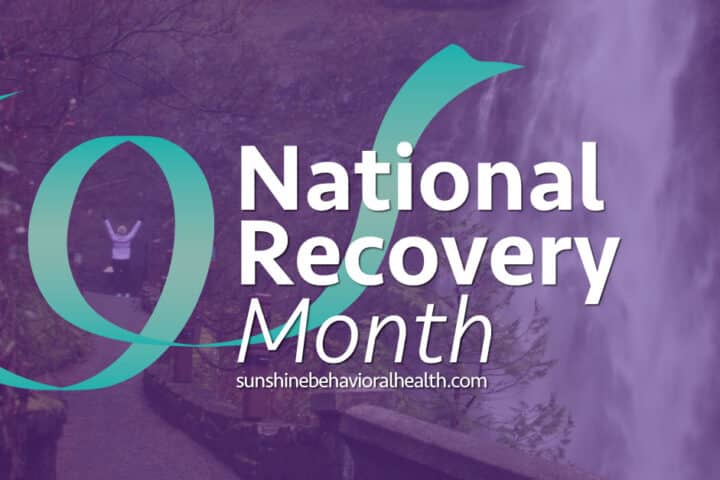
National Recovery Month: Making an Inventory
When recovering from drug or alcohol addiction, people don’t reach a final state and are cured for life. National Recovery Month acknowledges that recovery is a lifelong process that requires ongoing effort.
To assist in their recovery, some people join 12-step groups. These groups allow recovering people to support other recovering people. The programs feature a series of steps that participants that can undergo.
In many of the 12-step groups, such as Alcoholics Anonymous and Narcotics Anonymous (AA and NA), step four is: “Made a searching and fearless moral inventory of ourselves.”
This step can be particularly painful, because our thoughts and actions may have been big factors in our drinking and drug use. We may have gotten drunk or high to try to forget some of the things we did and thought.
Or, while we were drunk or high, we might have done things that could have hurt ourselves or others. These things may bother us, and we want to forget them.
We might want to consume even more alcohol or drugs to soothe our pain. But doing this could lead us we to do more things while we’re under the influence, creating a dangerous cycle.
Thinking about our past and writing it down might be the last things we want to do. But these actions can help.
“[T]he pain does not come in writing this inventory, the pain comes in resisting the writing,” noted 12Step.org, who added that writing about our pain and fears can help us release them. It observed that “the way of strength, paradoxically, is in becoming vulnerable.”
Taking a moral inventory requires us to write about our actions, thoughts, and feelings. Writing is an established tool to address mental health. Studies have found that people who wrote about traumatic and stressful events reduced their anxiety levels.
Since anxiety can also contribute to substance abuse and addiction, writing and reducing anxiety are practices that can be extremely helpful for sustaining a long-term recovery.
Examining ourselves and admitting things to ourselves isn’t easy. But these practices can help us approach our lives with vulnerability and honesty. They can aid our recovery by releasing fear and providing emotional relief.
Sources
12step.org – The 12 Steps in a Generic Form
sunshinebehavioralhealth.com – What Is Self-Harm or Self-Injury?
12step.org – Fourth Step Inventory
ncbi.nlm.nih.gov – Effects of Expressive Writing on Psychological and Physical Health: The Moderating Role of Emotional Expressivity
A Message From Our CEO
Medical disclaimer:
Sunshine Behavioral Health strives to help people who are facing substance abuse, addiction, mental health disorders, or a combination of these conditions. It does this by providing compassionate care and evidence-based content that addresses health, treatment, and recovery.
Licensed medical professionals review material we publish on our site. The material is not a substitute for qualified medical diagnoses, treatment, or advice. It should not be used to replace the suggestions of your personal physician or other health care professionals.





